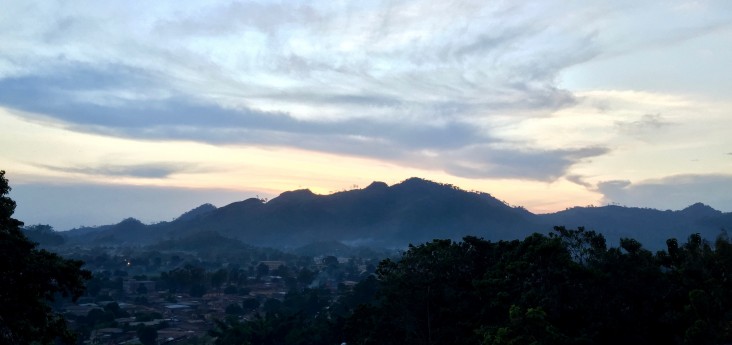Côte d'Ivoire is one of West Africa's biodiversity hot spots; its rugged interior is home to over 1,200 animal species and 4,700 plant species. However, agriculture, uncontrolled fires, and logging have resulted in severe deforestation. USAID works to increase and protect forest biodiversity, address the adverse effects of climate change, reduce greenhouse gas emissions, and enhance the sequestration of carbon.

West Africa Biodiversity and Climate Change Program
WA-BiCCs aim is to improve conservation and climate-resilient, low emission growth across West Africa. Working through three regional partners—the Abidjan Convention, the Mano River Union, and ECOWAS—this new project has three objectives: 1) Combat wildlife trafficking through the revision and operationalization of national and regional policies, laws and regulations; 2) Improve coastal resilience through integrated planning and the strengthened capacity of local, national and regional frameworks; and 3) Reduce deforestation, degradation and biodiversity loss in key forests through technical and knowledge-management support.
Land Use Dynamics and Adapting to Climate Change in West Africa
The Land Use Dynamics and Adapting to Climate Change in West Africa project uses remote sensing imagery to map and monitor land use and land cover across West Africa from the 1970s to the present. The trends are quantified to directly support efforts to coordinate regional action plans for the management of “trans-boundary” forests; establish forest and agricultural baselines using high resolution imagery; monitor quantitative changes in forest resources; and to help national environmental agencies and their development partners protect the remaining national and community forests while improving agricultural productivity.
Sustainable & Thriving Environments for West Africa Regional Development (STEWARD)
STEWARD promotes sustainable livelihoods in communities adjacent to forests, through developing sustainable non-timber forest product value chains. The program also advances good governance through the development and implementation of forest management plans, trans-boundary policy and legal frameworks for natural resources management and biodiversity conservation. In addition, STEWARD develops climate-resilient water, sanitation and hygiene systems, and viable payment for ecosystem service models, including piloting carbon finance.








Comment
Make a general inquiry or suggest an improvement.